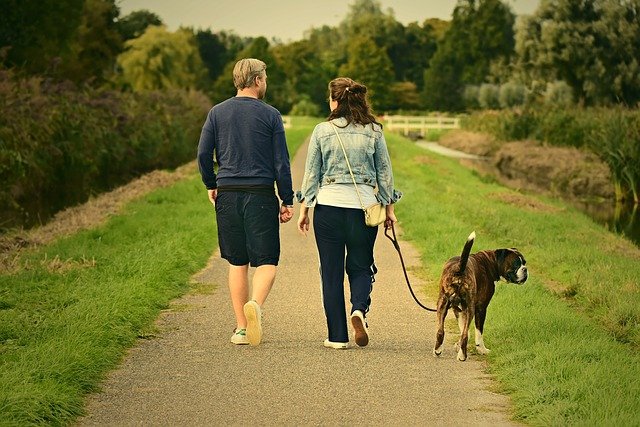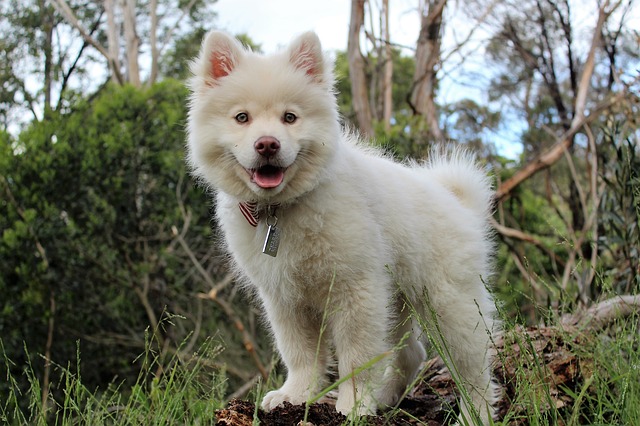Can dogs get traumatized by yelling

Ever thought about Dog Trauma Symptoms? 7 Traumatized Dog Symptoms You Should Know
Dogs are like kids that need our love and attention. Pets who have suffered from traumatic events may need extra support, love, and patience. This blog post has put together everything you need to know about dog trauma symptoms and what you can do to help a traumatized dog.
Lets get started:
Dog Trauma Symptoms
Determining that your dog is traumatized can be a confusing and difficult process. The trauma symptoms in dogs may vary depending on the cause.

How To Find Out If Your Dog Is Traumatized
A dog can be traumatized for many reasons. It will take a lot of time and effort to help your dog get over its trauma.Here are some symptoms we can look for that might indicate trauma in your dog.
1. Fear and anxiety
Just like humans, traumatized dogs can also develop fear and anxiety problems. They may show avoidance behaviors such as hiding or becoming still or repeatedly pawing at their owners.
2. Inability to sleep
Insomnia or inability to sleep in dogs typically stems from trauma. It is either a behavioral problem or a medical condition.
3. Outbursts of aggression
Dogs may attempt to flee situations where they are traumatized. They may become aggressive when they encounter the situation or if forced out of a hiding spot.
4. Hyper-vigilance
Some dogs become extremely sensitive to their surroundings. They try to stay alert to any hidden dangers.
5. Non-responsive to commands
The outward signs of a traumatized dog are that they will ignore your commands. They are unable to pay attention to your commands.
6. Decreased interest in a favorite activity
Your traumatized dog may refuse to play, even if you play their favorite game or give them their favorite toys.
7. Signs of pain and distress
Your traumatized dog may show signs of pain including whimpering, crying, shivering, or hiding.
The trauma signs in dogs may mimic other conditions, so it is important to have your dog evaluated by your vet when problems arise. By knowing the symptoms, you can take the proper measures to regulate your dogs behavior.
- Dog traumatized after vet: Some dogs are really traumatized by the vet appointment. Usually, the first visit to the vets office is a traumatic experience.
- Dog traumatized after haircut: Grooming accidents can upset dogs. They sometimes do get embarrassed by a new haircut.
- Dogs are traumatized after getting lost: Many dogs get separated from their families every year. This may be the most traumatizing experience of a dogs life.
Some common causes of traumatized behavior in dogs may include:
- Being abandoned to live as a stray dog
- Bad weather or thunder
- Natural disasters like hurricanes and tornadoes
- A serious car or household accident
- The loss of their caretaker
- Physical or emotional abuse
- Mistreatment at the hands of a past owner
- Bad interactions with people or other animals
How To Help A Traumatized Dog?
Trauma has a lifelong impact on many dogs. The good news is that there are many things that you can do to help your dog. Going through the recovery process together can make your bond even stronger. Here is what you can do to help a traumatized dog:
Create a sense of safety
Give your traumatized dog a clear structure of safety. These dogs have their mindset on constant alert. They should be given time to feel safe and secure.
Set up a comforting spot
Create a safe place, for example, a mat or safe zone, without being forced to interact for predictable portions of the day. It is the place where treats, relaxation, and massage take place, and make sure to keep it that way. Dont let anything bad happen to your dog in that place.
Give the dog some control and choices
Give some opportunities to your traumatized dog to make choices about its environment, schedule, and care. The use of force must be avoided whenever possible.
Set your dog up to make good choices, then reward those choices to build the dogs confidence. Let your furry pal keep some autonomy and give them space to decompress.
Try play therapy
Many experts suggest playing therapy as a great technique to make dogs feel thoroughly comfortable after trauma. Exercise and play sessions should be vigorous but relaxing and enjoyable.
A walk around the neighborhood is a good start for your dog. Here are some things you can do together to calm down your dog in safe ways:
- Going for long walks
- Going for jogging
- Playing tug of war
- Fetch games
- Swimming
- Agility exercise

Once youve burned that extra energy away, your dog should be exhausted but pleasantly relaxed.
Establish a positive reinforcement protocol
Rewards like treats, playtime, and chew toys are the motivators for your traumatized dog. You can reward your fur buddy for showing some calmness and settling down. Remember that harsh behavior is not the answer. Never punish your dog for undesirable behavior.
Give time and show patience
You need to be consistently firm and patient with your furry pal. Recovering from trauma and behavioral modification of your dog takes time and effort. Give your furry friend several days to settle in before getting back to normal social life. Gradually and slowly expose them to new people, sights, and places.
Take your time and lower your expectations. Allow your traumatized dog to move at its own pace and take things moment by moment. With patience and consistency, the outcome will be worth it and rewards will come back to you in spades!
Hire a professional
If you are a new pet parent, seek help from a qualified veterinarian. If you continue to have problems, consider hiring a professional dog behaviorist to help. They can be a great resource because of their experience and knowledge about behavior modification. A professional dog behaviorist will help you to figure out the best ways to heal your dog and let it live a happy and healthy life.
Reiki For Dogs With Trauma Symptoms
Reiki is an ancient Japanese healing practice that is beneficial for healing a traumatized dog. It is an energy that helps keep things balanced.
Reiki works on dogs by balancing and unblocking the dogs own energy centers and pathways. This in turn supports the dog bodys ability to heal itself. Reiki involves the channeling of natural healing energy from its divine source into a subject.
Reiki is a supportive system that aids the bodys natural healing process. Reiki has multiple benefits for dogs. It helps to reduce pain, relieve anxiety, or alleviate fears while giving your dog a sense of relaxation. Reiki can help:
- Ease aches, pains, strains, and allergies
- Boost the immune system, increase energy levels, and enhance overall well-being
- Decrease healing time after surgery, injury, trauma, or illness
- Remove emotional or psychological blocks that are deterring physical health
- Addresses problems with the coat and skin
- Reduce stress, anxiety, nervousness, and promote relaxation
- Supplements other medical treatments
- Strengthen the bond between you and your dog

Living With A Traumatized Dog
The road to making your dog feel thoroughly comfortable after trauma can be a long one. Emotional traumas are often harder to treat than physical ones. You can make this journey successful by giving your dog love and showing patience. However, showering your traumatized dog with love is not sufficient.
There are few considerations to keep in mind while living with a traumatized dog.
- Understand your dogs triggers
A traumatized dog is more likely to become re-traumatized if it re-encounters any key stressor. So, you need to understand your dogs triggers in order to prevent future trauma episodes.
Dogs need to realize the world is an ordered place. Having a regular routine helps with rebuilding confidence in dogs. Knowing exactly what to expect eliminates the fear of the unknown.
The exposure to a trigger should be carefully planned. Otherwise, it will make things much worse. The dog will get over the triggers with planned exposures.
- Avoid ultra-protected lifestyle
Dont make your pet over-sensitive by making them live an ultra-protected life. Just be careful to avoid major triggers and foreseeable stresses.
Watch your own behavior and emotions around your traumatized dog. Any energy you project, your dog will reflect back. Try to stay in a calm assertive state of mind and project yourself as a confident pack leader.
Never use any techniques that can give your dog a shock or frighten them. This will damage the bond between you and your dog or make your pet aggressive.
Final Thoughts About Dog Trauma Symptoms
Dogs and humans get along well because both are social species and crave companionship. You should provide your traumatized dog social support, a sense of belonging, security, and being loved.
Remember, when you bring home a four-legged member, you are committing to a long-term relationship. Dogs bring an incredible amount of joy to our lives. Try to never give up on providing your dog with the best quality of life possible.
Hope you enjoyed reading this article! Did you find it helpful? Feel free to share your thoughts with us.
Can dogs get traumatized by yelling?
Yelling At Dogs Can Cause Them Long-Term Trauma, Study Says Researchers in Portugal studied 42 dogs from reward-based training schools and 50 dogs from aversion-based training schools.How does screaming affect a dog?
So shouting isn't a solution. It encourages fear and distrust: Your dog may become wary of you when you scream, and learn to be scared of you. It can lead to a distrustful pet-parent relationship. Your pet may get worked up: Yelling at your dog can lead them to believe it's a shouting party!
Are dogs sensitive to screaming?
Yelling or raising your voice
Dogs are very sensitive to human tone of voice; it doesn't take a lot to effectively communicate that you are unhappy with their actions. This means that yelling or even raising your voice at your dog is not only unnecessary, but it can have unintended negative outcomes.
Do dogs feelings get hurt when you yell at them?
New research suggests that adversely training, e.g. yelling at, your dog could cause long-term psychological harm. Dogs that had undergone adverse training methods were found to have higher cortisol levels in their saliva and displayed more stress behaviors.
Do dogs remember that you yelled at them?
Dogs don't have the same kind of memory as humans. The past is gone quickly. That's one reason why you should never punish your dog for anything that he has done more than a few seconds ago: he won't understand. This doesn't mean that the incident is forgotten, though.
Stop Yelling At Your Dog Dog Training Myth Positive Methods Dog Training
How do dogs apologize?
Cowering When a dog has done something wrong, they often lowers their head and body, slink away, and show avoiding behavior. This submissive body language is their way of apologizing and showing they didn't mean to cause trouble.
Do dogs forgive you for hitting them?
Dogs are incredibly forgiving of one time incidents. You had a bad day, the dog comes up to be pet, you angrily smack them, most dogs are over it the next day, because they sense (instincts) that you feel bad about it and reassure them.
Can yelling cause anxiety in dogs?
Yes, dogs can experience stress and anxiety when exposed to constant yelling and screaming in their environment. Like humans, dogs can be affected by the emotional atmosphere in their surroundings. It's important to create a calm and positive environment for pets to help them feel safe and secure.
What to do if I yelled at my dog?
Understanding Your Dog
We may even yell at our dogs. But it's what happens after that matters most. If you do find yourself with a yell, follow it up with some praise. It will help your dog learn and prevent other challenges in the future.
Do dogs react to humans crying?
Previous research has shown how dogs are responsive to the sound of humans crying. But the new study, led by psychology and brain science researcher Emily Sanford, found that dogs who detect their owner's emotional distress will rush to do something about it.
Is yelling at a dog verbal abuse?
"It's well known and understood by the public that dogs respond to the tone and volume of the voice and that dogs are susceptible and will suffer from fear and distress if verbally abused particularly if this is recurrent or long lasting.
How do I apologize to my dog for yelling?
If you want to apologize to your dog, talk to them calmly and soothingly with a slightly high-pitched voice, the one we tend to use when talking to babies or puppies. You don't have to say sorry, but the words that you usually use to reward your dog when they behave correctly, such as well done or good boy.
How do you apologize for yelling at a dog?
5 Ways to Say Sorry to Your Dog
- Don't shout or raise your voice.
- A pat on the head or back will go a long way.
- You can ruffle its furs or carry it in your arms.
- You can use soothing words or phrases.
- Give your dog its favorite treat.
Can you hurt a dog's feelings?
There are five things you might be doing that could hurt your dog's feelings. The first is ignoring your dog. Dogs thrive on attention, so when their tails wag and your reaction lags, it bums them out. Pushing your dog away or ignoring them can give them the doggie blues.
Should you alpha roll your dog?
Position statements on dominance released by AVSAB question the science behind training techniques that rely on dominance theory. They recommend the alpha roll should never be used by inexperienced trainers, and never to correct undesired behavior caused by the dog's failure to understand a command.
How long does a dog remember what he did wrong?
"Dogs forget an event within two minutes," reported National Geographic, citing a 2014 study performed on various animals from rats to bees. Other animals have long-term memories, such as dolphins, but dogs don't seem to have a long-term memory that lasts much beyond those two minutes.
Why do dogs lick you?
Licking is a natural and instinctive behaviour to dogs. For them it's a way of grooming, bonding, and expressing themselves. Your dog may lick you to say they love you, to get your attention, to help soothe themselves if they're stressed, to show empathy or because you taste good to them!
Can dogs live together after a bad fight?
Some have recommended that the dogs not be anywhere near one another for at least 48 hours following the fight, even if they live in the same household, while others recommend that getting a positive interaction between the two animals as soon as possible is the best course of action -- at the end of the day, however, ...
How do I show my dog I love him?
Here are a few ways you can show love to your dog:
- Ear rub.
- Have a daily playtime.
- Teach them new tricks.
- Have warm and hearty conversations.
- Take time to cuddle.
- Surprise your dog with a treat.
- Hang out together.
- Treat your pup with respect.
What is the best way to scold a dog?
Constructive punishment helps your dog learn through conditioning, and quickly understand what's allowed and what's not. Disciplinary methods that are considered to be positive and beneficial are: Time-outs. Using your voice to put a stop to unwanted behavior, rather than hitting your dog.
Why is the dog daddy apologizing?
Responding to the substantial backlash and claims of animal maltreatment, Deoliveira issued an apology through his YouTube channel. He conceded that his actions in the video were unacceptable and communicated regret.
Why shouldn't I yell at my dog?
It will make you feel nervous and scared when you yell at your dog for bad behavior or not obeying a command; it makes him feel nervous and scared. Yelling at your dog could lead to some rather undesirable consequences, even if you're just trying to reprimand them for bad behavior.
Why do dogs lick you when you accidentally hurt them?
Your dog is taking care of you, in the best way she knows. Because it doesn't understand why you hurt him/her. Licking is begging for your forgiveness and wants you to love him/her again. So do so.
Is hitting a dog in the face abuse?
State law definitions of dog and animal abuse may vary, but they generally cover a wide range of actions and conduct towards a dog. Such laws cover both physical abuse of a dog (such as striking, hitting, maiming, etc.) as well as acts of neglect.









